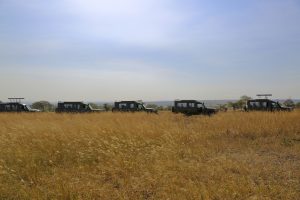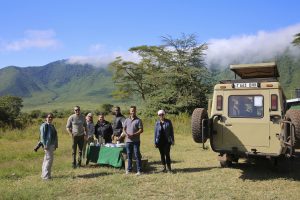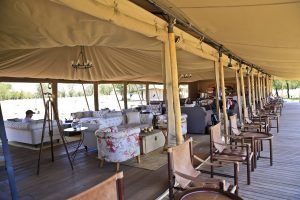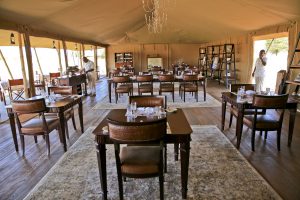A visit to KENYA, EAST AFRICA – well worth the trip
October 20, 2023Tanzania – A country where the smile never left my face.
October 20, 2023I’ve had quite a few clients query the expense of going on Safari. Considering that I work very hard to meet all my clients’ budgets and take pride in making their trip affordable I thought it time to explain many of the factors that contribute to the cost of a great Safari.
Africa is vastly different to Europe in relation to infrastructure and distance. Beyond the cities and towns of many African countries there are no airports, only airstrips which are suitable for smaller aircraft. This means, only a few clients can arrive and leave at a time. There are no fuel tankers at the airstrips for simple refueling so every ounce of fuel must be trucked in at great expense. Roads are usually dirt or gravel and are washed away in the rainy seasons. Renting a grader out to the Masai Mare or the Serengeti to rebuild the road takes much planning, not to mention a big chunk of change.
At each destination you visit consider that every item of food you eat, bottle of wine you drink or mattress you sleep on has been transferred across hundreds or thousands of kilometers. These items have travelled by dirt road, chartered plane and even on ferries across torrential rivers. Some locations are literally in the middle of nowhere. If for example you are somewhere in the middle of Namibia, there is no popping down to the store when you run out of cheese. Keeping a lodge up to European standards takes careful, logistical planning.
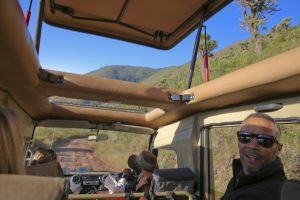
Staff-to-guest ratios at many lodges and camps can run at 3-to-1 or even higher. At high-end hotels in the West, you may not encounter staff beyond a bellhop, concierge, barman or waiter. These staff return home at the end of the day. In Africa, 90% of the staff live at the lodge. This means all meals, laundry, accommodation, uniforms, toiletries, transport and medical must be provided. In addition, many camps like to offer specialized services like private butlers, babysitters, private guides and birding experts.
Tourism in Africa also has additional challenges. Lack of infrastructure often means lodges need their own generators to provide electricity. Also consider anti-poaching units which need to keep an eye on the animals and mechanics to keep all vehicles in good working order. With more lodges starting vegetable gardens to supply their kitchens with freshly picked ingredients gardeners must be employed. Never mind keeping the garden safe from marauding monkeys and grazing gazelles.
Africa is considered expensive for three main reasons: lack of infrastructure, complicated logistics and high staff to guest ratios. Add to these factors a tourism policy that promotes ‘high price-low density’ to protect fragile ecosystems from mass human traffic (the way Botswana protects the Okavango Delta and Tanzania, the Serengeti) and you have a fair picture of what influences the cost of an African safari.
Africa is an exotic, challenging and exciting continent and those who love it find themselves returning year after year. Yes, it may be expensive compared to other destinations, but I think you would be hard pressed to find an African traveler who didn’t believe it was worth the money spent.

